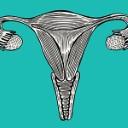-
Why I Put Down My Camera
A professional photographer shares advice on living in the moment after caring for his father, who had stage IV lung cancer.
by Jay Perry
-
Vaccinating Against Cancer
The human papillomavirus vaccine can significantly cut recipients' risk of several types of cancer. So why are vaccination rates relatively low in the U.S.?
by Brad Jones
-
Sacrificing for Care
A study finds that patients with cancer not only say they are willing to make financial sacrifices for treatment but actually have done so.
by Marilyn Fenichel
-
The Genetics of Metastatic Cancer
The multiple tumors in patients with metastatic disease share key genetic traits, a sequencing study shows.
by Anna Azvolinsky
-
A Sense of Purpose
In a Facebook Live discussion about When Breath Becomes Air, Lucy Kalanithi talks about safeguarding a person’s identity in the face of terminal disease and shares tips and resources for caregiving.
by Marci A. Landsmann
-
The Roots of Rural Health Disparities
New research shows that rural cancer patients have the same health outcomes as urban cancer patients so long as they are involved in a clinical trial.
by Cheryl Platzman Weinstock
-
Learning to Share
At first, I wanted to hide my cancer diagnosis. My son showed me what a mistake that was.
by Lenn Robbins
-
The Health Legacy of 9/11
People who were directly affected by the Sept. 11 terrorist attacks can receive screenings and care for medical conditions, including certain cancers, through the World Trade Center Health Program.
by Brad Jones
-
Life After Pediatric Brain Cancer
Survivors of pediatric brain or spinal cord tumors can have cognitive and physical impairments. Researchers say that these deficits can be minimized with the right interventions.
by Cheryl Platzman Weinstock
-
A New Guideline for Cervical Cancer Screening
Physicians Lee Learman and Francisco Garcia discuss the updated U.S. Preventive Services Task Force guideline and the need to increase access to cervical cancer screening.
by Anna Azvolinsky
Cancer Talk
Study Highlights Challenges in Pancreatic Cancer Staging
Most pancreatic ductal adenocarcinoma cases initially considered to be stage I are changed to a higher stage after surgery.
by Taneia Surles
Understanding How High and Low Testosterone Levels Can Treat Prostate CancerUsing high-dose testosterone after prostate cancer stops responding to androgen deprivation therapy can stop tumor growth.
by Sandra Gordon
Financial Screenings for People with CancerCancer patients say they want to be asked about their financial needs on a regular basis.
by Pamela Appea
Let Me Tell You a Story About the Power of Medical ResearchTen-year-old Michael Methner told his story about being diagnosed with optic nerve glioma at the AACR’s Rally for Medical Research.
by Cancer Research Catalyst














